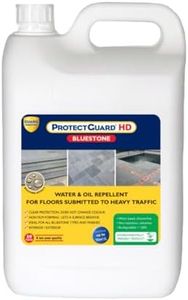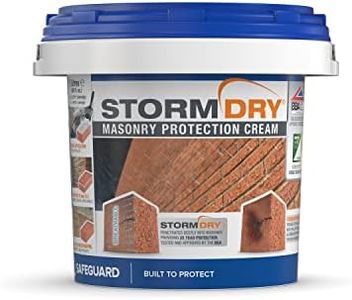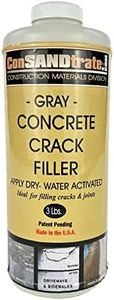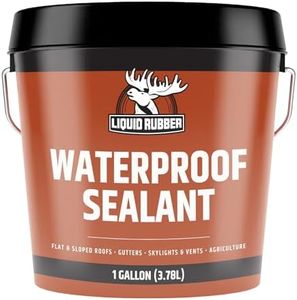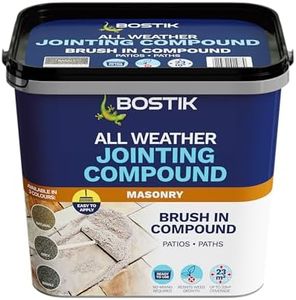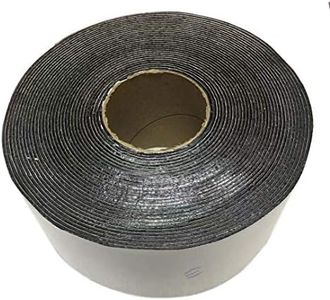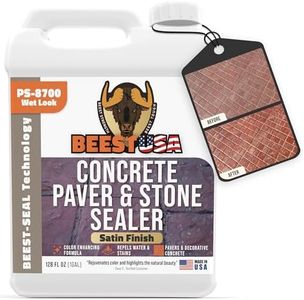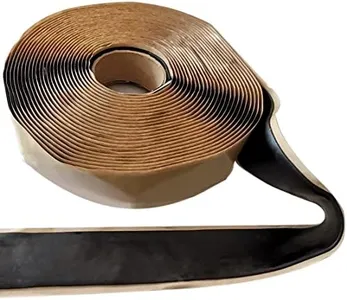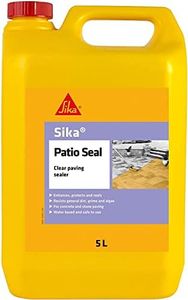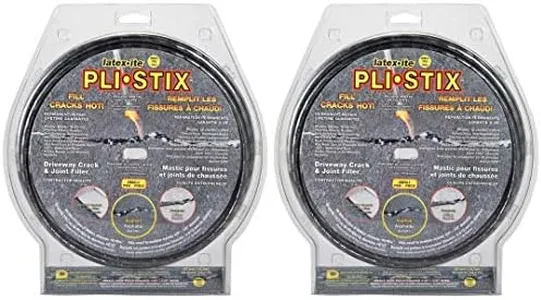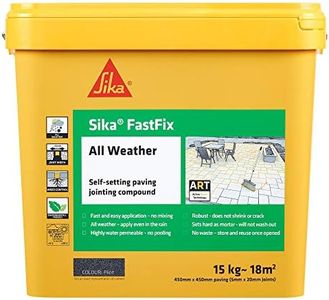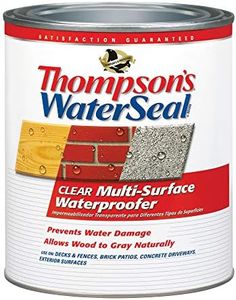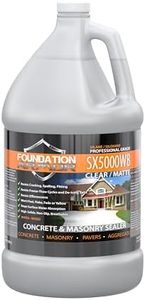We Use CookiesWe use cookies to enhance the security, performance,
functionality and for analytical and promotional activities. By continuing to browse this site you
are agreeing to our privacy policy
10 Best Driveway Sealers
From leading brands and best sellers available on the web.By clicking on a link to a third party's website, log data is shared with that third party.
Buying Guide for the Best Driveway Sealers
Choosing the right driveway sealer is all about protecting your driveway, making it look good, and extending its life. Different driveway surfaces (like asphalt or concrete) and various weather conditions call for different types of sealers. Knowing the main features can help you match a sealer to your specific driveway type and how much exposure to weather, traffic, or staining it gets. The overall goal is to make sure your driveway stays protected, looks neat, and is easy to maintain.Type of SealerDriveway sealers mainly come in types like asphalt-based, coal tar, acrylic, and penetrating sealers. This spec is crucial because different driveways and climates do better with certain types. Asphalt-based and coal tar sealers sit on top of the driveway and protect against water, oil, and UV. Acrylic sealers provide a glossy look and resist damage from sunlight. Penetrating sealers seep into the driveway, providing deep protection from moisture. To pick the right one, consider your driveway's material and issues you face, such as lots of rain, harsh sun, or oil stains; for instance, penetrating sealers are great for concrete, while asphalt-based or coal tar are mostly for asphalt surfaces.
Finish (Gloss or Matte)This refers to the appearance the sealer gives after application—either shiny (gloss) or flat (matte). The finish is important for two reasons: curb appeal and the surface's slipperiness when wet. Gloss finishes can make your driveway look newer but might be slick; matte finishes aren't as slippery and look more natural. If you want your driveway to stand out and don’t have to worry about slip hazards, glossy might be right; otherwise, go matte for safety and a low-key look.
Durability and LifespanThis is about how long the sealer lasts before needing to be reapplied. Some sealers last one year, while others can last up to five. Durability matters because it saves you time and effort. Generally, thicker or heavier-duty products last longer. If your driveway gets lots of use, or you don’t want to reapply every year, look for sealers with a longer lifespan; however, lighter-use driveways might be fine with less durable options.
Drying TimeDrying or cure time is the period the driveway must stay untouched after application. This spec is important if you need to use your driveway soon after sealing. Fast-drying options can be ready in a few hours, while others may take a full day or more. Choose one based on how quickly you need the job done; for busy households, a quick-drying sealer may be more convenient.
Weather ResistanceWeather resistance measures how well the sealer stands up to rain, sun, freezing, or thawing. This is crucial for maintaining driveway protection through all types of weather. Some sealers are engineered for climates with heavy rainfall, while others are good for UV protection in sunny areas or freeze-thaw cycles. Pick according to your climate—think about what your driveway faces most (sun, rain, snow, or changes between freezing and thawing).
Protection Against Oil and ChemicalsThis specification tells you how well a sealer stops oil, gasoline, and other chemicals from staining the driveway. If you park vehicles on your driveway or have lots of traffic, stain protection is important. High-resistance sealers are best if oil spills or leaks are a common issue, while basic protection is fine for driveways that don’t see much chemical exposure.
Ease of ApplicationSome sealers are easier to apply than others—they might be ready to use out of the package or need mixing, and can be spread using brushes, rollers, or sprayers. This matters if you plan to do it yourself. If you want a simple DIY project, look for a sealer marked as easy to use and requiring minimal prep.

